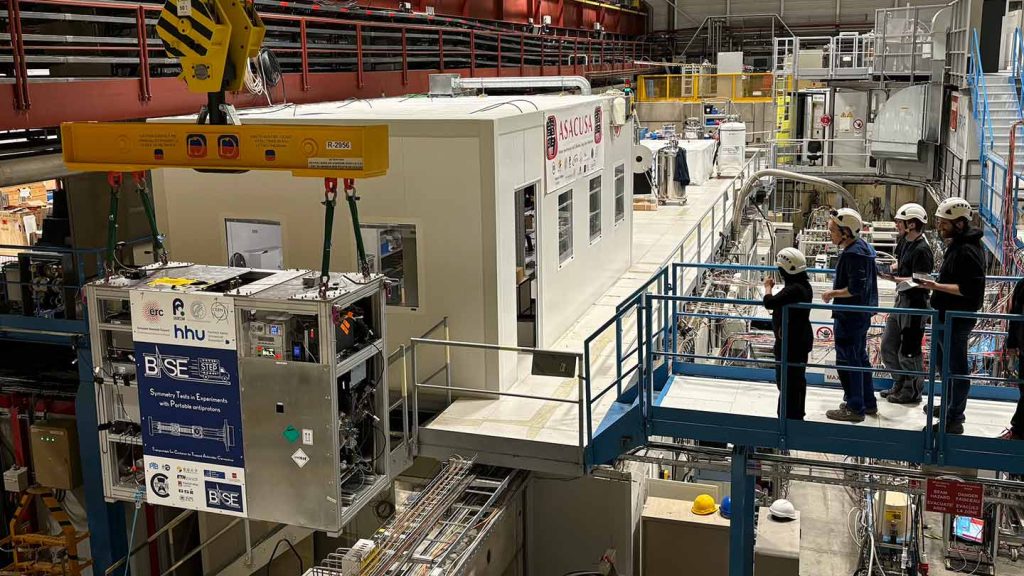Scientists at CERN have made progress in transporting antimatter particles, specifically antiprotons, by using them as a stand-in for protons. This development is a crucial step towards understanding the mystery of why antimatter is rare compared to ordinary matter.
Antiprotons are a valuable resource that can only be studied and trapped at CERN. Scientists aim to transport them to other locations to access better experimental conditions. Antimatter is extremely fragile and must be suspended in a vacuum chamber using electromagnetic fields, making it challenging to transport.
The BASE-STEP project at CERN designed a trap that can safely transport a cloud of protons by truck, demonstrating the feasibility of moving antimatter particles in the future. The successful transport of particles over a 4-kilometer distance marks a significant milestone in antimatter research.
Future experiments will focus on testing the antiprotons with the ultimate goal of distributing them to labs across Europe. This advancement opens up new possibilities for studying antimatter and investigating its properties in various experimental setups.
The ability to transport antimatter particles by truck not only provides researchers with greater access to these rare particles but also allows for experiments outside of CERN to be conducted more effectively. This development has the potential to advance our understanding of antimatter and address fundamental physics questions.
Support for scientific journalism, like that provided by Science News, is crucial in promoting scientific literacy and ensuring that informed decisions are made based on scientific evidence. By subscribing to Science News, readers can contribute to the strengthening of science communication and education.


